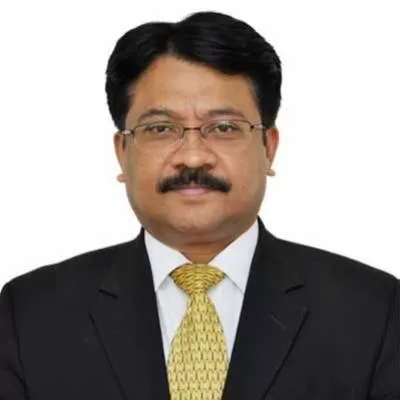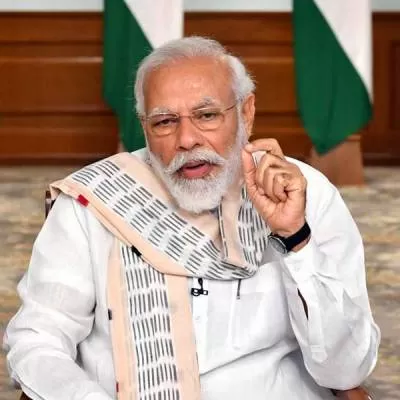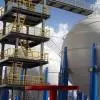- Home
- Infrastructure Urban
- ECONOMY & POLICY
- Even if the Indian economy went a bit flat for a while, there would be ...
Even if the Indian economy went a bit flat for a while, there would be ...
What is your assessment of the business relationship between India and the UK? There is a feeling that it has not been explored enough.
I think we want an increased business relationship between India and the UK. It is not as much as we would like at this point, but there are positive signs with lots of examples of companies that are doing well. Some of them, like JCB, are quite integrated into the Indian economy; you cannot see a building site in India without a JCB. I think we sometimes overlook the success in the relationship.
Of course, we would like more companies to be here; also to see an increase the amount of trade and build on the strong relationship we already have. The prime minister came here in February his second visit in one term with the largest delegation we have ever sent anywhere, ever. His visit to India was actually the first he did anywhere as prime minister. So there is a lot of interest among UK companies in expanding their activities in India. You will be surprised to see how much of it is already here in the construction domain. UK companies have been involved in some major projects taking place here. HOK, Halcrow and others have been engaged in the Indian construction sector for several years now. We also have Atkins, who has had a very large presence here for a long time but is now increasingly looking to expand its engagement on the design and engineering side.
What are your areas of focus?
We are looking for opportunities where we add high value, skills and technology others cannot bring. There is less focus on more commoditised infrastructure projects. Our companies have been looking for and doing good work on airport projects. For example, there was a lot of work by a UK company on the new control tower in Mumbai airport-ùyou can see how beautiful and sleek it is. We have companies looking at opportunities in airports, railways, specialty construction in roads and ports.
Is the UK's current involvement more in the area of consultancy? A lot of our companies are engaging as consultants but we have others looking at India in great depth, not necessarily just in consultancy but getting into the nuts and bolts of actually building things. Then, we have other companies that are also looking to take on operations and maintenance once construction is completed, and bring discipline to transport projects.
India has been talking of adding high-speed trains to its railways network and British companies have been looking to engage with the Indian government. Has there been any movement on this?
As we speak, there is a delegation of Indian officials in London visiting railway projects and looking at our skills and experience, especially in the metro and underground sector. We are looking to bring a group of businesses to India probably early next year to see some of the exciting projects that are taking place in this sector. The countries at the top in high-speed rail are France, Germany and Japan but every one of these systems has strong UK elements. So although we may not be making a bid to build a line from Mumbai to Delhi as a high-speed rail, you will definitely find UK technology and supply chain in any high-speed rail development.
The Delhi-Mumbai industrial corridor holds enormous potential for UK companies and investors. Tokyo has already established first mover advantage. Then, there are the Smart Cities being planned. What is the view from London on this?
We actually like what the Japanese have done in the Delhi Mumbai Industrial Corridor and our admiration for their vision and foresight is genuine. We are not viewing the Japanese as competitors; when we talk of investment in infrastructure in India and the capacity to do the work, there is plenty for everyone. We are not just looking at ways to get business for UK companies from the project but find ways to support the project and ensure it is a success.
Will we see a rise in investment flow into the Indian construction/infrastructure sector from the UK now that the rupee has depreciated?
Infrastructure has a very long time horizon and I do not think any sensible company will make big decisions on shorter movements individually because any investment will be an investment over 10, 20, 30 years. What is most important is the view of the economic fundamentals and our view is that the economic fundamentals of India are good though the rupee may have weakened a little. I do not think we should overstate how much the rupee has weakened. It has weakened a little over the past few months but currencies weaken and strengthen all the time. In the world of investment, what really matters is the long-term prospect for getting products and services into the market that will be appreciated and make money for people.
Are you saying India is still viewed favourably?
I would say there is long-term positivity about India, and there has been for some time. Frankly, the negative sentiment is actually within India itself rather than from other countries. We are pretty confident that negative sentiments will go over time. Our theory is that long-term prospects for India, its economy and infrastructure development are good. Even if the Indian economy went a little bit flat for a short while, there still would be plenty of opportunity here.
The opportunity exists but do you discern urgency on the part of the Indian government to push projects forward?
It is not really for me to comment on the Indian government. I think everybody appreciates the benefits that are coming to India from improvement in basic infrastructure. We are not just talking about roads, railways and airports but water and sewage projects. The question will be whether, collectively, we can help get some of these to completion. Whether they will be completed in the next month or two months is not the most important thing. The most important thing is that we see that things are going in the right direction and the projects are coming through.
If you were a British company, what would be the challenges here for you?
It is difficult to generalise too much but a common difficulty in any infrastructure project is land acquisition. It would certainly be helpful if there was a slightly more efficient and effective system. There is now a Land Acquisition Bill but we are yet to see the results of that. The other big issue is to ensure there is a financing framework for projects that makes sense for all involved- so that it is at a rate where companies can make some money. Equally, the rates of financing should not be so ridiculously high that they are unaffordable. I know the Indian government is doing a lot of work to refine the financing models for infrastructure projects, attract investments on PPP and other private secto-financing lines, and we definitely support it.
Have there been recent trade missions to India from the UK related to projects in the construction/infrastructure sector? And what has the outcome been?
The most recent trade mission was early this year to Calcutta and Kochi led by UK Cabinet Minister Eric Pickles. The objective was to derive an understanding of the market, projects and opportunities, and build a relationship with the concerned state governments. We are interested in India's development and see infrastructure as one of the ways development can be facilitated. The mission was also intended to emphasise the seriousness that the UK government attaches to infrastructure and to help companies meet other companies. Besides meetings with government, a number of relationships were formed at a company-to-company level between UK and Indian firms. We are there to help them build on these relationships.
Are there specific projects of interest to the UK?
We are looking at a number of projects at the moment. For example, we are spending a lot of time on the DMIC. We are hoping in October to have a big event in London around DMIC spreading the message about the project and the opportunities. It is likely that officials from the Indian government will go to the UK for that. The opportunities are immense. It is not just about building a dedicated freight corridor, roads, hospitals, clinics, schools, but getting water infrastructure in place. No one country can possibly deliver all of that. I would expect all the major countries to be interested in DMIC, and looking at how they can contribute to the effort Japan has spearheaded. Along the same lines as DMIC is the Bangalore Mumbai Economic Corridor, which is obviously not at the same stage. In this case, the UK and Indian governments have agreed to jointly fund a feasibility study and we expect very shortly to issue the need procurement documents for that. We are quite confident that, over the next year, some interesting things will come out from the Bangalore Mumbai Economic Corridor. So in some ways, here, we are taking on a similar role as Japan took on DMIC seven or eight years ago. We are also spending quite a lot of time looking at metro projects in various cities and in the longer term we are looking keenly at some developments in the airport sector; for example, Navi Mumbai and Nagpur, and some smaller airport works throughout India. We have quite a deep relationship with the Indian government. For instance, early in the year we helped co-organise a seminar in Delhi about land economics with the Ministry of Urban Development. The idea is to instil a sense of how best to use land and how to build it economically and in a sustainable manner.
Ben Aldred, First Secretary, UK Trade & Investment Ben Aldred displays an ease of manner, a kind of happy bonhomie that could easily find resonance with Robin Hood's band of merry men in Sherwood Forest. The comparison with the legendary brigand could well be a trifle exaggerated, but the geographical coordinates are not very far off the mark the UK civil servant hails from Nottingham. Aldred, who is First Secretary, UK Trade & Investment (UKTI) in Mumbai, has been immensely popular at the various positions assigned to him both in his country and abroad; his last assignment was with the UK Trade and Investment in Tokyo where he led on trade policy and economics. In an exclusive interview with SHRIKANT RAO, the civil servant who currently leads on infrastructure- including transport, built environment and financial services spoke about the areas of the construction sector where both India and the United Kingdom could raise levels of engagement. What is your assessment of the business relationship between India and the UK? There is a feeling that it has not been explored enough. I think we want an increased business relationship between India and the UK. It is not as much as we would like at this point, but there are positive signs with lots of examples of companies that are doing well. Some of them, like JCB, are quite integrated into the Indian economy; you cannot see a building site in India without a JCB. I think we sometimes overlook the success in the relationship. Of course, we would like more companies to be here; also to see an increase the amount of trade and build on the strong relationship we already have. The prime minister came here in February his second visit in one term with the largest delegation we have ever sent anywhere, ever. His visit to India was actually the first he did anywhere as prime minister. So there is a lot of interest among UK companies in expanding their activities in India. You will be surprised to see how much of it is already here in the construction domain. UK companies have been involved in some major projects taking place here. HOK, Halcrow and others have been engaged in the Indian construction sector for several years now. We also have Atkins, who has had a very large presence here for a long time but is now increasingly looking to expand its engagement on the design and engineering side. What are your areas of focus? We are looking for opportunities where we add high value, skills and technology others cannot bring. There is less focus on more commoditised infrastructure projects. Our companies have been looking for and doing good work on airport projects. For example, there was a lot of work by a UK company on the new control tower in Mumbai airport-ùyou can see how beautiful and sleek it is. We have companies looking at opportunities in airports, railways, specialty construction in roads and ports. Is the UK's current involvement more in the area of consultancy? A lot of our companies are engaging as consultants but we have others looking at India in great depth, not necessarily just in consultancy but getting into the nuts and bolts of actually building things. Then, we have other companies that are also looking to take on operations and maintenance once construction is completed, and bring discipline to transport projects. India has been talking of adding high-speed trains to its railways network and British companies have been looking to engage with the Indian government. Has there been any movement on this? As we speak, there is a delegation of Indian officials in London visiting railway projects and looking at our skills and experience, especially in the metro and underground sector. We are looking to bring a group of businesses to India probably early next year to see some of the exciting projects that are taking place in this sector. The countries at the top in high-speed rail are France, Germany and Japan but every one of these systems has strong UK elements. So although we may not be making a bid to build a line from Mumbai to Delhi as a high-speed rail, you will definitely find UK technology and supply chain in any high-speed rail development. The Delhi-Mumbai industrial corridor holds enormous potential for UK companies and investors. Tokyo has already established first mover advantage. Then, there are the Smart Cities being planned. What is the view from London on this? We actually like what the Japanese have done in the Delhi Mumbai Industrial Corridor and our admiration for their vision and foresight is genuine. We are not viewing the Japanese as competitors; when we talk of investment in infrastructure in India and the capacity to do the work, there is plenty for everyone. We are not just looking at ways to get business for UK companies from the project but find ways to support the project and ensure it is a success. Will we see a rise in investment flow into the Indian construction/infrastructure sector from the UK now that the rupee has depreciated? Infrastructure has a very long time horizon and I do not think any sensible company will make big decisions on shorter movements individually because any investment will be an investment over 10, 20, 30 years. What is most important is the view of the economic fundamentals and our view is that the economic fundamentals of India are good though the rupee may have weakened a little. I do not think we should overstate how much the rupee has weakened. It has weakened a little over the past few months but currencies weaken and strengthen all the time. In the world of investment, what really matters is the long-term prospect for getting products and services into the market that will be appreciated and make money for people. Are you saying India is still viewed favourably? I would say there is long-term positivity about India, and there has been for some time. Frankly, the negative sentiment is actually within India itself rather than from other countries. We are pretty confident that negative sentiments will go over time. Our theory is that long-term prospects for India, its economy and infrastructure development are good. Even if the Indian economy went a little bit flat for a short while, there still would be plenty of opportunity here. The opportunity exists but do you discern urgency on the part of the Indian government to push projects forward? It is not really for me to comment on the Indian government. I think everybody appreciates the benefits that are coming to India from improvement in basic infrastructure. We are not just talking about roads, railways and airports but water and sewage projects. The question will be whether, collectively, we can help get some of these to completion. Whether they will be completed in the next month or two months is not the most important thing. The most important thing is that we see that things are going in the right direction and the projects are coming through. If you were a British company, what would be the challenges here for you? It is difficult to generalise too much but a common difficulty in any infrastructure project is land acquisition. It would certainly be helpful if there was a slightly more efficient and effective system. There is now a Land Acquisition Bill but we are yet to see the results of that. The other big issue is to ensure there is a financing framework for projects that makes sense for all involved- so that it is at a rate where companies can make some money. Equally, the rates of financing should not be so ridiculously high that they are unaffordable. I know the Indian government is doing a lot of work to refine the financing models for infrastructure projects, attract investments on PPP and other private secto-financing lines, and we definitely support it. Have there been recent trade missions to India from the UK related to projects in the construction/infrastructure sector? And what has the outcome been? The most recent trade mission was early this year to Calcutta and Kochi led by UK Cabinet Minister Eric Pickles. The objective was to derive an understanding of the market, projects and opportunities, and build a relationship with the concerned state governments. We are interested in India's development and see infrastructure as one of the ways development can be facilitated. The mission was also intended to emphasise the seriousness that the UK government attaches to infrastructure and to help companies meet other companies. Besides meetings with government, a number of relationships were formed at a company-to-company level between UK and Indian firms. We are there to help them build on these relationships. Are there specific projects of interest to the UK? We are looking at a number of projects at the moment. For example, we are spending a lot of time on the DMIC. We are hoping in October to have a big event in London around DMIC spreading the message about the project and the opportunities. It is likely that officials from the Indian government will go to the UK for that. The opportunities are immense. It is not just about building a dedicated freight corridor, roads, hospitals, clinics, schools, but getting water infrastructure in place. No one country can possibly deliver all of that. I would expect all the major countries to be interested in DMIC, and looking at how they can contribute to the effort Japan has spearheaded. Along the same lines as DMIC is the Bangalore Mumbai Economic Corridor, which is obviously not at the same stage. In this case, the UK and Indian governments have agreed to jointly fund a feasibility study and we expect very shortly to issue the need procurement documents for that. We are quite confident that, over the next year, some interesting things will come out from the Bangalore Mumbai Economic Corridor. So in some ways, here, we are taking on a similar role as Japan took on DMIC seven or eight years ago. We are also spending quite a lot of time looking at metro projects in various cities and in the longer term we are looking keenly at some developments in the airport sector; for example, Navi Mumbai and Nagpur, and some smaller airport works throughout India. We have quite a deep relationship with the Indian government. For instance, early in the year we helped co-organise a seminar in Delhi about land economics with the Ministry of Urban Development. The idea is to instil a sense of how best to use land and how to build it economically and in a sustainable manner.



















